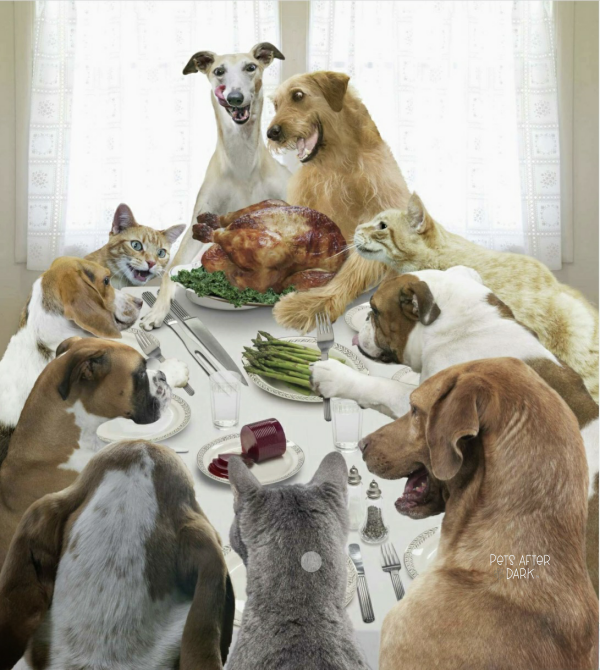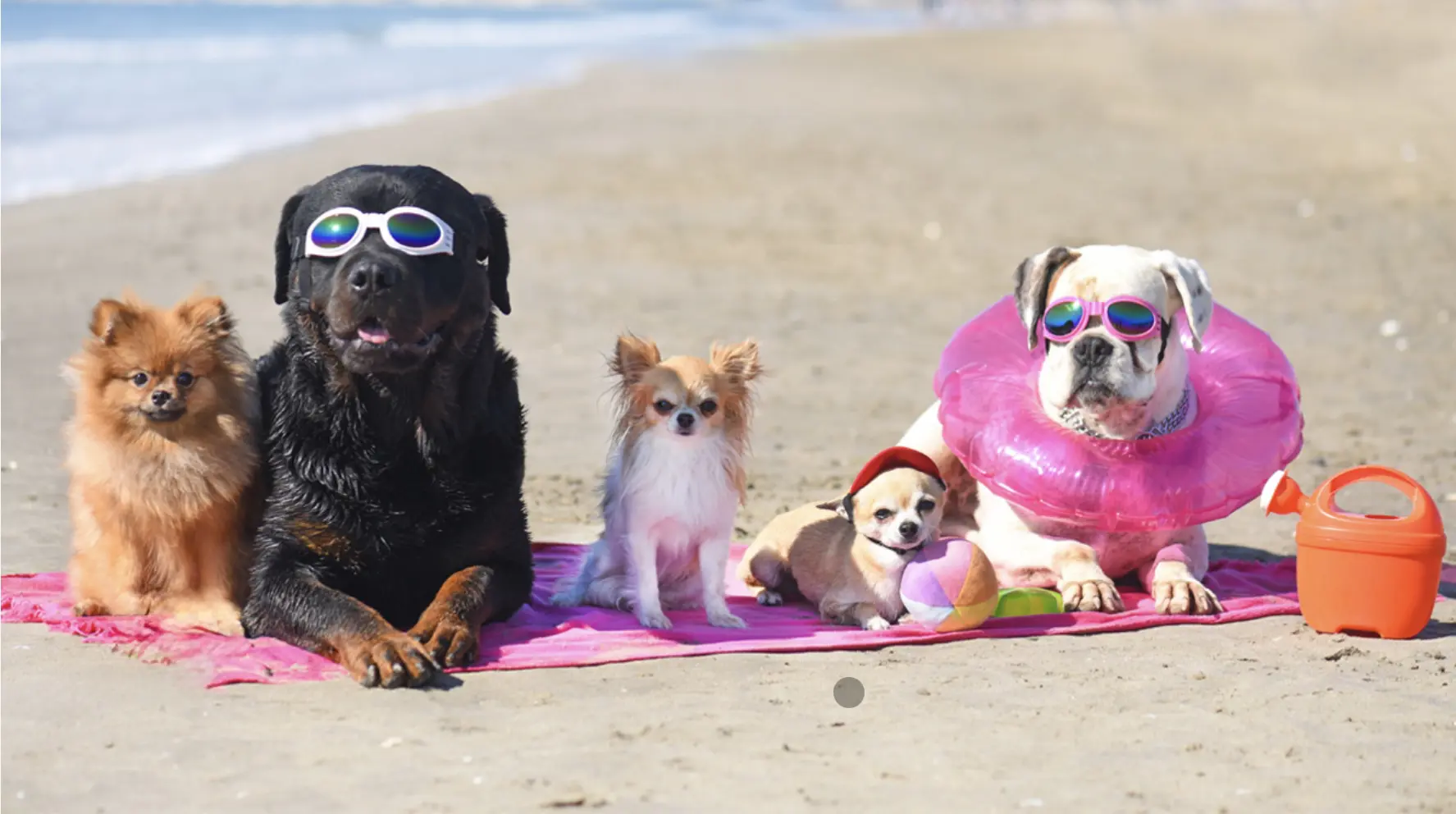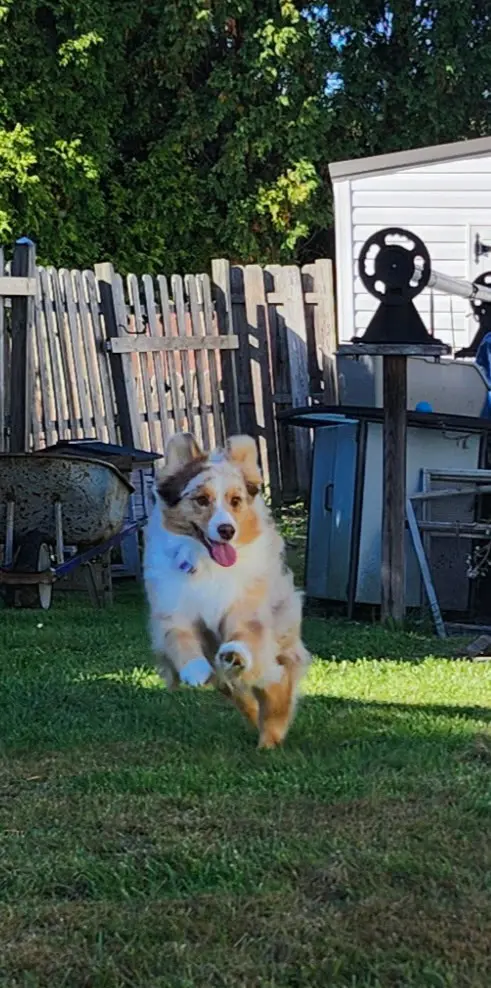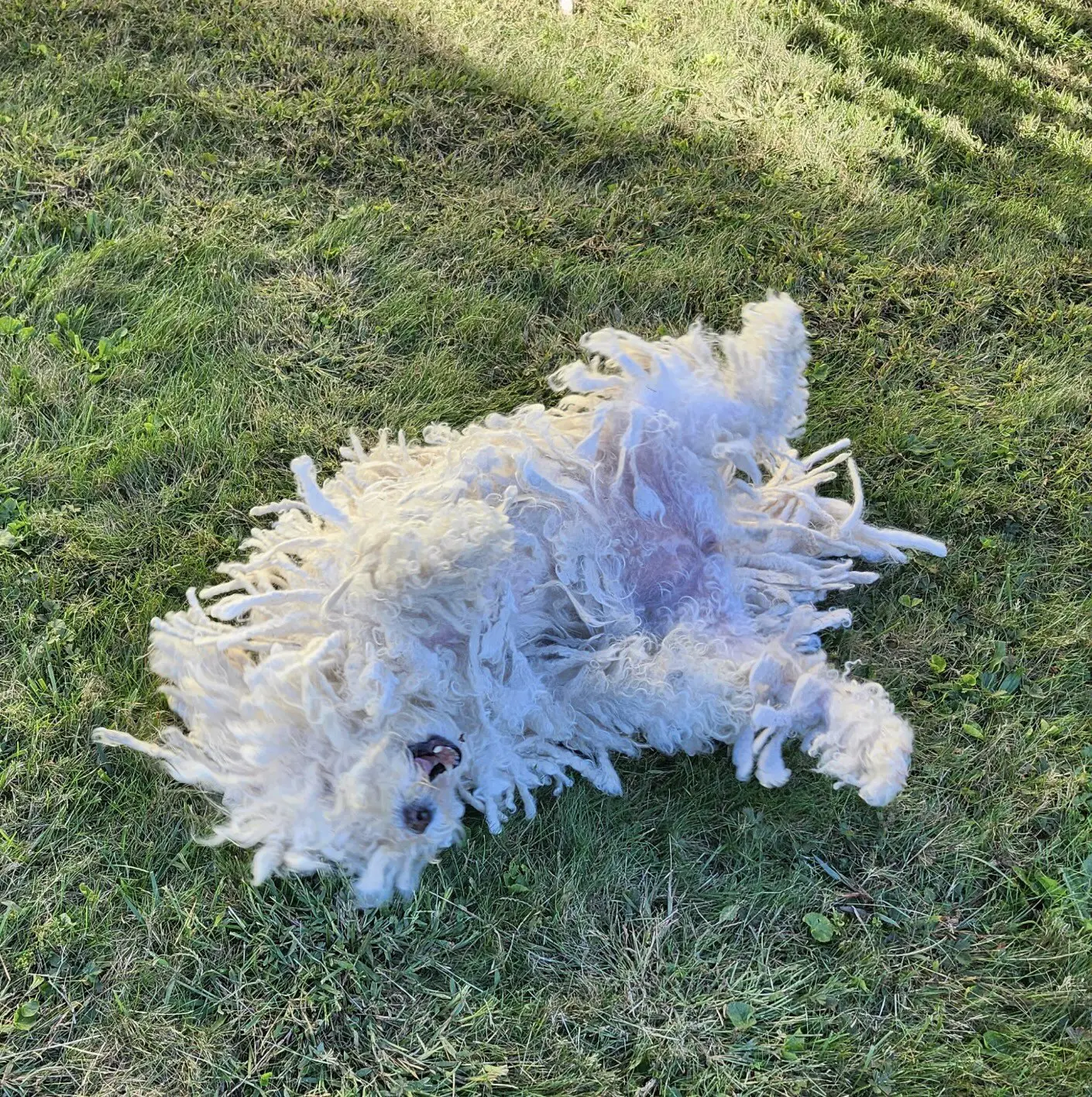
Holiday Joy for Pets: The ‘Yes, They Can Have That’ Edition
Every year around this time pet owners are warned about toxic foods and holiday hazards. And while it’s important to
Weeknights 7PM - Midnight
Weekends 8AM - Midnight

This past weekend I dropped off Dixie and Mabel at their favorite pet sitter’s house after which my husband Howard and I flew up to Canada to spend Canadian Thanksgiving with my family at our childhood cottage. Imagine beautiful fall colors, big blue skies on a gorgeous lake and a time to relax with the family. Yet after picking up the dogs we all crashed at home, all of us (dogs included) feeling like we had just finished a triathlon.
As a veterinarian, I found myself wondering: do dogs really experience the same “vacation exhaustion” that we do, even when they’re having fun? Turns out, science says yes—kind of.
You’d think the dogs had it made, right? They LOVE spending time at their vacation home. They lose their minds with excitement when we pull up to drop them off. And yet, when I picked them up after our respective “vacations,” we all stumbled through the door with the exact same energy: Thank goodness we’re HOME!


Mabel and Dixie both enjoying their time away from home!
Research shows that dogs experience measurable stress when they’re away from their familiar environment, even in positive situations. Studies examining cortisol levels (the stress hormone) in dogs during boarding revealed something fascinating: dogs show an initial spike in cortisol when they first enter a kennel, pet hotel, or other boarding environment, followed by a gradual decrease as they adapt. However, those cortisol levels remain elevated compared to their baseline at home throughout their stay.
One particularly interesting study found that cortisol-to-creatinine ratios were significantly higher in kenneled dogs compared to dogs in their home environment. But here’s the twist—cortisol doesn’t just indicate negative stress. It can also spike with excitement and arousal. So when your dog is losing their mind with joy at the pet sitter’s, bouncing around with their dog friends, getting extra treats, and experiencing all those novel smells and activities, they’re genuinely having a blast. But they’re also in a state of heightened arousal that, while fun, is ultimately more taxing than their regular routine. I found this parallel to be delightfully similar to a similar rise in cortisol we have all experienced at one time or another while spending Thanksgiving with family-enough said!
Research also shows that dogs have individualized attachment relationships with their owners, and the presence of a familiar person can reduce stress associated with novel environments. One study found that stress in new situations could be decreased by a familiar human, but not by a familiar dog. So while your pup might be having a great time with their canine friends at the sitter’s, they’re still aware that their favorite human—you—is missing from the picture.
As it turns out the “Post-Vacation Slump” is universal. When I got home, I did what any exhausted person does: I flopped on my own couch, in my own living room, and stared at my own ceiling while contemplating why I ever left. The dogs? They went straight to their beds, circled approximately 47 times (as is tradition), and collapsed into the deepest sleep I’ve seen since the last time they spent time away from home. Mabel literally slept on her father’s head for half the night, finding comfort in the reunion with her humans.
For the next two days, we were all basically zombies. Me, recovering from family togetherness. Them, recovering from the exhausting joy of a different routine, new friends, exciting adventures, and the cognitive load of being in an unfamiliar environment—even one they love.
We all needed our own spaces, our own routines, and our own beds to truly decompress. According to research, that initial period of heightened cortisol when dogs enter a new environment gradually decreases as they adapt but it doesn’t fully return to home baseline levels. So even though my dogs adapted to the pet sitter’s house over the weekend, their little nervous systems were working overtime the whole time.
Vacations are wonderful. Dogs at pet sitters are (usually) wonderful. But there’s something universally exhausting about being anywhere other than home, no matter how enjoyable the experience is. Whether you’re navigating cottage life without your own coffee maker or navigating a pet sitter’s house with a different couch to snuggle on, your body and brain are working extra hard to compensate.
So the next time you pick up your dog from boarding and they seem wiped out despite having “the time of their life,” remember: they’re not being dramatic. They’re experiencing the same phenomenon you do when you return from vacation and immediately need a vacation from your vacation.
By Dr. Caroline Simard-Swimmer
Medical Director, Pets After Dark
References
1. Bergamasco, L., et al. (2010). “Heart rate variability and saliva cortisol assessment in shelter dog: Human-animal interaction effects.” Applied Animal Behaviour Science, 125(1-2), 56-68.
2. Hennessy, M. B., et al. (1997). “Plasma cortisol levels of dogs at a county animal shelter.” Physiology & Behavior, 62(3), 485-490.
3. Kuhne, F., Hößler, J. C., & Struwe, R. (2014). “Behavioral and cardiac responses by dogs to physical human-dog contact.” Journal of Veterinary Behavior, 9(3), 93-97.
4. Tuber, D. S., et al. (1996). “Dogs in animal shelters: Problems, suggestions, and needed expertise.” Psychological Science, 7(3), 181-186.

Every year around this time pet owners are warned about toxic foods and holiday hazards. And while it’s important to

Life on the Inside: How to Keep Indoor Cats Happy (and Out of Trouble) There’s something fascinating about how differently

The Pet First Aid Kit You’ll Actually Use (Not the 47-Item Amazon Monster List) Over the past two years, our
Pets After Dark is a subscription-based service that provides expert, local after-hours veterinary care.